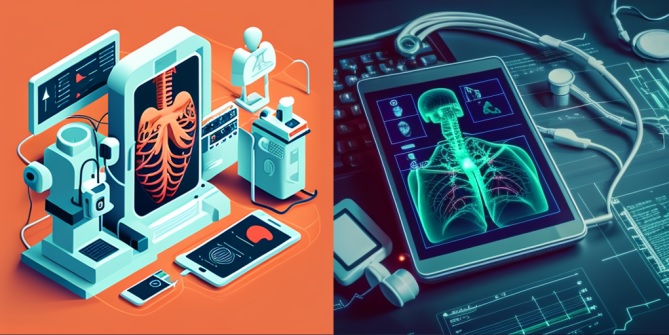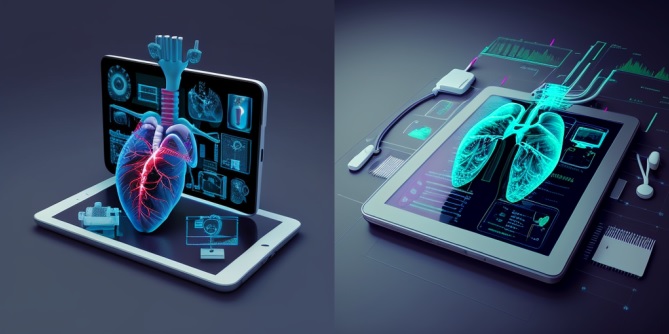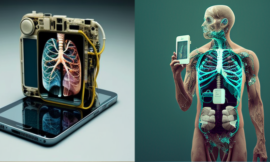Health and Technology Impact Factor
“Discover the impact of technology on healthcare through the use of impact factors. Learn how technology such as EHRs, telemedicine, genomics, precision medicine, and big data analytics have improved patient outcomes and reduced healthcare costs. Stay informed on the latest advancements in healthcare technology and its impact on the industry.”
Health and Technology Impact Factor
Technology has had a significant impact on the healthcare industry, and this impact can be measured through the use of impact factors. Impact factors are a way to quantify the impact that a particular journal or research paper has had on its field. In the context of healthcare and technology, impact factors can be used to measure the impact that technology has had on patient outcomes, healthcare delivery, and the overall healthcare system.
Health and Technology Impact Factor
One of the most significant ways that technology has impacted healthcare is through the use of computerized health records (EHRs). EHRs are digital versions of the paper medical records that were traditionally used by healthcare providers. They allow for the storage and sharing of patient information across different healthcare providers and organizations, which can improve continuity of care and reduce the risk of medical errors. Studies have shown that the use of EHRs can improve patient outcomes, and decrease healthcare costs.
Another area where technology has had a significant impact on healthcare is through the use of telemedicine. Telemedicine is the use of technology, such as video conferencing, to provide medical consultations remotely. This can be particularly beneficial for individuals in rural areas or those with mobility limitations, as it allows them to access medical care without having to travel to a physical location. Research has shown that telemedicine can improve patient outcomes and reduce healthcare costs.
Health and Technology Impact Factor
Technology has also had a significant impact on the field of genomics and precision medicine. Genomics is the study of the genetic makeup of an individual, and precision medicine is a form of healthcare that takes into account an individual’s genetic makeup when developing treatment plans. By analyzing an individual’s genetic data, healthcare providers can identify genetic variations that may increase the risk of certain diseases or respond differently to certain treatments. This can help to personalize treatment plans and improve patient outcomes.
Additionally, technology has also had an impact on healthcare through the use of big data and analytics. By collecting and analyzing large amounts of patient data, healthcare providers can identify patterns and trends that can inform clinical decision making.
Health and Technology Impact Factor
In conclusion, technology has had a significant impact on the healthcare industry, as seen through the use of impact factors. From electronic health records and telemedicine, to genomics and precision medicine, and big data analytics, technology has improved patient outcomes, reduced healthcare costs, and made healthcare more efficient and effective. As technology continues to advance, we can expect to see even more innovative ways that technology will impact the healthcare industry.
Health and technology are two fields that have seen a significant impact on each other in recent years. With the rapid advancement of technology, the healthcare industry has been able to improve the way it detects, diagnoses and treats various illnesses and diseases.
One of the most significant impact factors of technology on health is the ability to collect and analyze large amounts of data. Electronic health records (EHRs) have allowed for the storage and sharing of patient information, leading to more accurate and efficient diagnoses. Additionally, telemedicine has made it possible for patients to receive medical consultations and treatment remotely, improving access to healthcare for individuals in rural or underserved areas.
Another impact factor is the development of new medical devices and equipment. Advancements in imaging technology, such as magnetic resonance imaging (MRI) and computed tomography (CT) scans, have allowed for earlier and more accurate diagnoses. Robotics and 3D printing have also been used in surgeries, leading to less invasive procedures and faster recovery times.
Artificial intelligence (AI) is another area where technology is having a significant impact on health. AI-powered diagnostic tools are being developed to help doctors identify diseases and illnesses more quickly and accurately. Additionally, machine learning algorithms are being used to analyze vast amounts of medical data, leading to new insights and treatments.
While technology has brought many benefits to the healthcare industry, there are also concerns about its impact. One of the biggest concerns is privacy and security of patient data. With the increasing amount of personal information being stored electronically, there is a risk of data breaches and hacking. Additionally, the cost of new technology can be a barrier for some individuals and healthcare providers.
In conclusion, technology has had a significant impact on the healthcare industry, with advancements in data analysis, medical devices, and AI leading to improved diagnoses and treatments. However, it is important to address concerns about privacy and cost to ensure that everyone can benefit from these advancements.
Health and Technology Impact Factor
Advanced technology has revolutionized the healthcare industry in recent years, bringing about new and innovative ways to detect, diagnose, and treat a wide range of illnesses and diseases. One of the most significant impact factors of technology on health is the use of advanced data analytics and machine learning.
One of the most prominent examples of this is the use of Electronic Health Records (EHRs). The storage and sharing of patient information in digital form has allowed for more accurate and efficient diagnoses, and has also led to the development of new diagnostic tools such as natural language processing (NLP) and machine learning algorithms. These tools can analyze vast amounts of medical data and identify patterns and trends that can be used to improve patient outcomes.
“
Health and Technology Impact Factor” Another area where advanced technology has had a significant impact is in the development of new medical devices and equipment. For example, 3D printing technology has been used to create customized prosthetics, and robotics have been used in surgeries to improve precision and reduce recovery time.
Telemedicine is another area where technology is having a significant impact on health. The use of video conferencing, remote monitoring, and other digital tools has allowed patients to receive medical consultations and treatment remotely, which has improved access to healthcare for individuals in rural or underserved areas.
In the field of genomics, advancements in technology such as next-generation sequencing (NGS) has allowed for the rapid and cost-effective sequencing of DNA, which has led to the discovery of new genetic markers for diseases and the development of personalized medicine.
However, with the increasing use of advanced technology in healthcare, there are also concerns about data privacy and security. As more and more personal information is stored electronically, there is a risk of data breaches and hacking. It’s important for healthcare providers to implement robust security measures to protect patient data.
In conclusion, advanced technology has had a profound impact on the healthcare industry, leading to improved diagnoses and treatments, increased access to healthcare, and new insights into the underlying causes of diseases. However, it’s important to address concerns about data privacy and security to ensure that the benefits of these advancements can be enjoyed by all.









